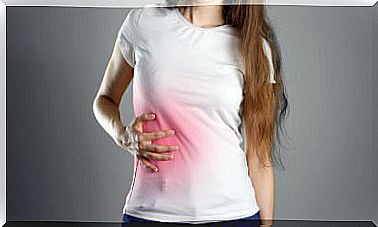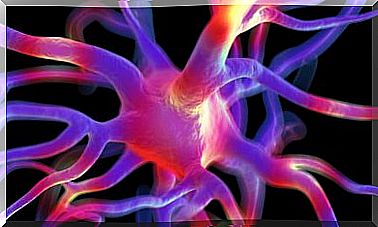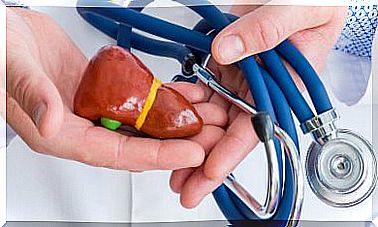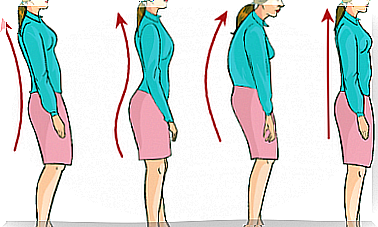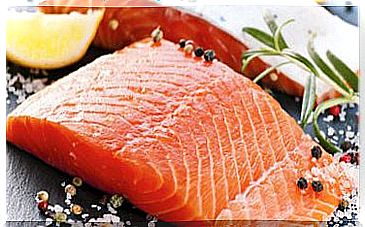Why Am I “bloated” All The Time?
If you have a continuously swollen gut it may be due to your eating habits. Increase water consumption and try to do physical activity to promote the elimination of gases

No matter what we do, how much exercise we practice or what diet we follow… Sometimes it can seem that the abdomen is never going to decrease and makes you feel bloated. The same can happen with the legs.
Beyond aesthetics, the problem is that the feeling of heaviness and discomfort sometimes do not allow us to enjoy our activities.
Do you want to know why you are bloated all the time? In this article we will tell you about it.
Possible causes of feeling bloated
The abdomen is one of the parts of the body that swells the most, causing us to sit bloated and not like ourselves when we look in the mirror.
Although it is not serious, it can be a nuisance because it tends to be accompanied by pain, gas or constipation.
The main causes of bloating in the belly are:
Premenstrual syndrome
According to this information obtained from the Mayo Clinic, it is one of the most recurrent causes. During this period prior to menstruation, the production of prostaglandins is reduced, causing fluid retention, as well as abdominal and breast swelling.
Accumulation of gases
Gases (also called meteorisms, according to this study carried out by the Ramón y Cajal Hospital in Madrid), are formed when the body digests food. They can form every time you eat or drink and swallow air naturally. The air is going to accumulate in the abdomen and when trying to leave it relaxes it. For this reason after the meal the situation worsens. Carbohydrates, such as pasta and bread, are the foods that produce the most gas.
Fluid retention
The main causes of fluid retention are poor lymphatic circulation, sedentary lifestyle and excess salt or sugar. In addition, not drinking enough water and standing or sitting for many hours are one of the causes of a bloated belly, since they also promote retention.
Intolerances
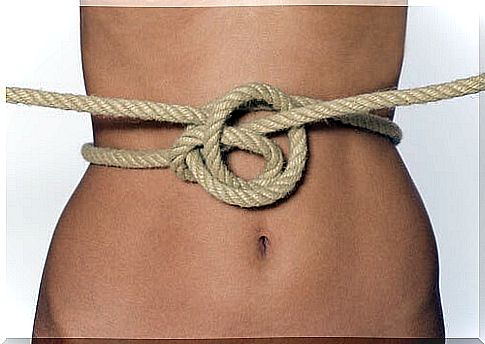
Food intolerances affect each person differently, but can cause discomfort and bloating after eating certain foods. They can also cause symptoms such as constipation or diarrhea, depending on the case. We realize that it is an intolerance because the symptoms begin after eating a certain food.
The most common intolerance is to lactose (milk sugar), which according to this information obtained from the National Institute of Diabetes and Digestive and Kidney Disorders, occurs when there is a malabsorption or deficiency in the enzyme lactase. In addition, gluten intolerance also stands out.
Hormonal diseases
When fluid is retained in the legs or lower belly, the causes can be liver, kidney or heart disorders. The use of certain medications can also cause hormonal alterations and, with them, weight gain, according to this study carried out with obese pregnant women by the La Paz University Hospital (Madrid).
Irritable colon
The accumulation of gases in the intestine is also causing you to look bloated. In this case, several symptoms are combined: abdominal pain, problems going to the bathroom, chronic or recurrent intestinal discomfort.
Eat fast
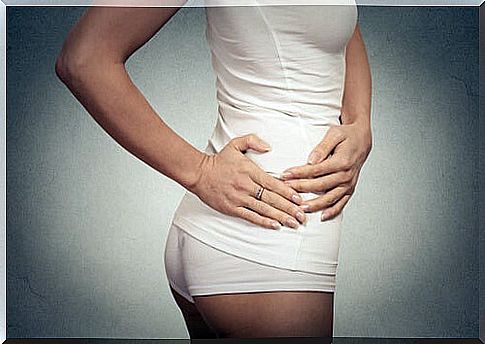
On numerous occasions, due to our fast pace of life, we eat too quickly, an incorrect habit due to:
- First: because the feeling of satiety takes almost half an hour to “reach” the brain, and we eat more than necessary.
- Second: because by swallowing in this way, more air enters the body, which can later translate into swelling.
Drink soda
Soft drinks are usually carbonated and highly sugary drinks that can cause bloating for a number of reasons. The gas they contain tends to distend the abdomen, and, in addition, their number of calories contribute to weight gain, as stated in this study carried out by the San Sebastián University, Santiago, Chile.
And be careful because sparkling water can also cause that feeling of a swollen abdomen, even if it does not have sugar, for the reasons already mentioned.
Eating too much or too little fiber
The lack of fiber is related to constipation (and therefore to bloating), but it is not good to consume it in excess either.
That’s right: fiber can be counterproductive, as it can lead to diarrhea and intestinal inflammation.
Eating too much flour
It is believed that foods rich in flour, such as pastries, pizzas, pasta … can cause a lack of digestive strength. This means that the stomach depletes enzymes before the task of digesting food is finished.
Therefore, these foods are “stored” where they should not and when they decompose they can cause gas, dyspepsia and abdominal bloating. However, there is no scientific evidence to support this claim.
Tips to reduce abdominal bloating
Once we have identified the reasons why the belly swells, the next step is to change certain habits or take action so that it does not continue to happen.
Among the keys that can help you we find:
- Reduce the consumption of salt.
- Drink at least two liters of water per day, since, according to studies such as the one carried out by the Spanish Federation of Nutrition, Food and Diet Societies , its intake is essential.
- Avoid the intake of laxatives, because they create dependency or diarrhea.
- Eat slowly and chew each bite several times.
- Avoid foods that cause gas (for example, legumes or artichokes).
- Perform an analysis that determines intolerance to a particular food.
- Replace the “forbidden” food (for example, drink almond milk instead of cow’s milk)
- Eat the right amount of fiber a day. Include more raw vegetables and fruits.
- Reduce your intake of fried foods and junk food. Bake, steam, or boil food.

